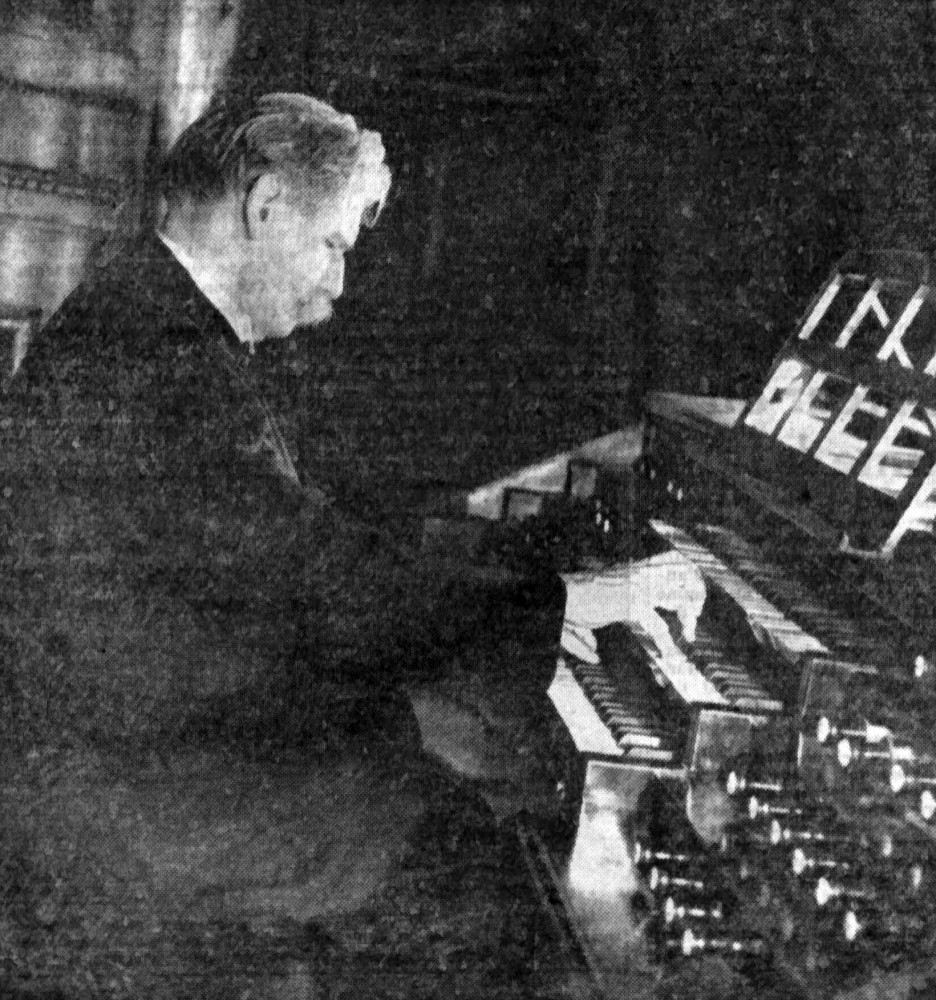In the footsteps of Dr Albert Schweitzer: nurturing a heart to serve
There are times when I doubt the value of humanity—the worth, goodness, or potential of people, and even feel a loss of direction. When this happens, I seek insight from great figures whose courageous acts, unconventional ideas, profound understanding of human nature, time-tested wisdom, and selfless efforts have earned them a distinguished place in history. Among these individuals, Dr Albert Schweitzer (1875 – 1965), is someone to whom I often look for inspiration and encouragement.

Born into a Lutheran family, Dr Schweitzer was a prominent German-French polymath renowned for his contributions to theology, music, literature, philosophy, and medicine. Dr Schweitzer’s musical talent was particularly remarkable. He was a notable organist who designed and built new organs, alongside repairing and rescuing many historic pipe organs in Europe. He was also a highly acclaimed authority on J.S. Bach. Besides studying and writing extensively on Bach, he performed Bach’s works. Listeners often remarked that hearing Schweitzer play Bach’s organ pieces was akin to hearing Bach himself. His connection with music continued even when working as a medical missionary in Africa later in life. During that time, he played organ concerts in Europe to raise funds to support his African missionary.
Above all the recognitions he has received, Dr Schweitzer is best known for his humanitarian work assisting the needy. A turning point in his life came when he read a report from the Society of Evangelical Missions in Paris about the needs of the Congo Mission. Driven by a vision to provide medical services in Africa, he relinquished his academic and musical career to re-enter the University of Strasbourg in 1905 to study medicine. Eight years later, he and his wife, Hélène Bresslau, journeyed to Lambaréné in the former French Equatorial Africa (present-day Gabon).
The simple clinic Dr Schweitzer initially established in Lambaréné gradually evolved into a comprehensive medical centre that treated local people suffering from leprosy, dysentery, elephantiasis, sleeping sickness, malaria, yellow fever, and other ailments. During his work in Africa, Dr Schweitzer developed his philosophy of “Reverence for Life”, which emphasised the importance of respecting all living beings. This philosophy guided his humanitarian endeavours and medical practice throughout the rest of his life. He was awarded the Nobel Peace Prize in 1952 for “his altruism, reverence for life, and tireless humanitarian work which has helped making the idea of brotherhood between men and nations a living one”.
Dr Schweitzer was a towering intellectual figure who made significant contributions to music, theology, and philosophy. He earned doctorates in both philosophy and theology, and an M.D. from the University of Strasbourg. While Dr Schweitzer's scholarship is impressive, it was his courageous and humanitarian deeds that have inspired many. His powerful words have motivated many to champion causes that improve the wellbeing of others. One of my favourite quotes of his is: “I don’t know what your destiny will be, but one thing I know: the only ones among you who will be really happy are those who have sought and found how to serve.” We, as members of academia, should find our own ways to serve people and improve society through our teaching and research.
We, as members of academia, should find our own ways to serve people and improve society through our teaching and research.
Professor Jim Chi-yung, affectionately known as “Dr Tree” and the “Founding Father of Rooftop Greenery”, is a leading scholar in urban forestry research and conservation. He was ranked first globally in forestry research on the Stanford University-compiled “Single-Year” and “Career-Long” impact lists of the World’s Top 2% Most-Cited Scientists 2024. As the Research Chair Professor and Advisor of Geography and Environmental Science of the faculty, Professor Jim has published more than 450 scientific papers and books over his 43 years of teaching and research.
For many decades, Professor Jim has served the Hong Kong community with his passion and extensive knowledge in tree and urban conservation. In this issue of FLASS FORWARD, he discusses Hong Kong's achievements and challenges in urban conservation, and shares his vision of making our city a greener and more sustainable place to live. Readers will also gain insight from the interview with Professor Jim about why people’s lives flourish in a verdant environment.
Many of you probably know that Dr Karen Liu Shuwen from the Department of Social Sciences and Policy Studies (SSPS) is a travel enthusiast. She has channelled her love of travelling into a passion for environmental and cultural conservation. When travelling for leisure or research, she holds the ideal of sustainable tourism close to her heart. Dr Liu contributes an article to this issue, explaining the most important tourist assets that make a place appealing. She elaborates why tourism development must strike a balance between conservation and growth. To ensure that future generations can continue to enjoy stunning natural wonders and enchanting cultural heritages, she encourages us to be conscientious travellers: supporting local businesses, minimising the adverse environmental impact of our travel activities, and engaging with local cultures authentically.
There are many things we need to do to ensure a sustainable future for humanity. Mr Kelvin So, a graduate of Bachelor of Arts (Honours) in Education for Sustainability and a recipient of the Outstanding FLASS Alumni Award 2023/24, discovered his love for the ocean and enthusiasm for marine conservation during his first dive into the sea as an undergraduate at the Department of Science and Environmental Studies (SES). Since then, he has dedicated tireless efforts, both professionally and in his leisure time, to help people appreciate the beauty of the ocean and understand that humanity’s future depends on whether we can maintain the biodiversity of our seas.
This issue of the faculty newsletter also features an interview with Dr Fu Hong, Associate Professor in the Department of Mathematics and Information Technology (MIT). Dr Fu’s invention, an ocular misalignment measurement system, provides a novel solution for the diagnosis of strabismus. The invention, which is assisted by artificial intelligence (Al) analytics and deep-learning technologies, can help optometrists assess strabismus, enabling timely diagnosis to prevent delays in treatment and lasting damage to the patient’s vision.
Mr Salman Naqvi, a second-year student in the Bachelor of Science (Honours) in Artificial Intelligence and Educational Technology programme from Dr Fu's department, has been recognised as one of the EdUHK Rising Stars. Hailing from Pakistan, he is among the first cohort of international students to receive full entrance scholarships from the faculty. Interested readers can read the story about his learning journey at EdUHK and what transformative education at EdUHK means to him.
I would like to take this opportunity to congratulate several of our faculty members. Professor Chou Kee-lee from SSPS has secured HK$5.3 million in funding from the Research Grants Council (RGC) for an elderly loneliness intervention project he is leading. For many years, Professor Chou has led exceptional high-quality research projects to study loneliness among impoverished older adults in Hong Kong. His dedication is truly commendable.
Recently, the knowledge-transfer project run by Dr Lo Chung-kwan and his colleagues at MIT has garnered praise from the project’s funder, the Tin Ka Ping Foundation. The project successfully trained dozens of mainland mathematics teachers in using GeoGebra-based materials to help students understand mathematical concepts through interactive learning. In recent months, Associate Dean (International Engagement) Professor Stephen Chiu Wing-kai has been actively sharing his expertise. His lecture on the development of the faculty’s internship programme at the “QS Higher Ed Summit: Asia Pacific 2024” in Macau was well received. His recent talks at local secondary schools to update prospective applicants on the faculty’s new double degree undergraduate programmes were also met with enthusiastic responses. Please join me to give them a round of applause.
This year marks the 150th anniversary of Dr Schweitzer’s birth and the 60th anniversary of his death. More than half a century after he passed away, Dr Schweitzer may have become a lesser-known or even forgotten figure. The younger generation might prefer sharing new trends, viral news, short videos and memes on social media, rather than learning about what a man did to serve the needy a century ago in a land thousands of miles away. They may show little interest in learning from historical figures, looking up to people who have larger-than-life ambitions, and living a visionary life.
Our faculty members, Professor Jim and Dr Liu, and our alumnus, Kelvin, have set a good example to the contrary. They anchor themselves in history and take up the batons from their predecessors. Their vision extends far beyond their immediate difficulties and concerns. With years, or even decades, of commitment to the causes they believe in, Professor Jim, Dr Liu, and Kelvin are making a significant contribution to humankind in their own unique ways.

Dr Schweitzer was not a perfect figure. His paternalistic remarks during his service in Africa could conceivably make him a controversial figure by today’s standards. That said, he still merits our respect for working in such a challenging environment. Albert Einstein, a friend of Dr Schweitzer, said: “He did not preach and did not warn and did not dream that his example would be an ideal and comfort to innumerable people. He simply acted out of inner necessity.” Einstein’s comment highlights that Dr Schweitzer acted out of a deep conviction to serve others rather than seeking recognition. In an increasingly fragmented world, I believe we should all cherish such a conviction—a conviction that we can all contribute, no matter how small, to a more humane, sustainable, interconnected, and caring world.
Professor Li Wai-keung
Dean of FLASS
21 February 2025

